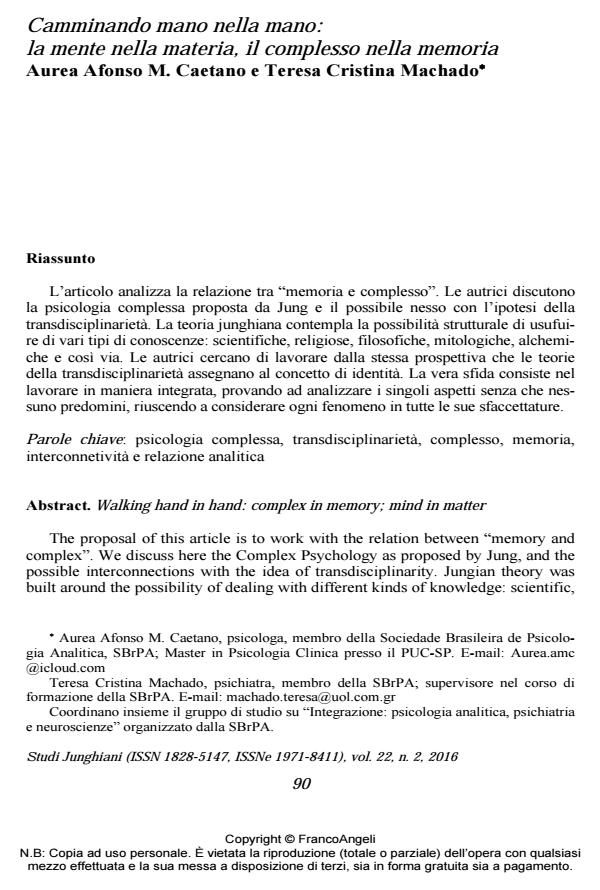Walking hand in hand: complex in memory; mind in matter
Journal title STUDI JUNGHIANI
Author/s Aurea Afonso M. Caetano, Teresa Cristina Machado
Publishing Year 2017 Issue 2016/44
Language Italian Pages 18 P. 90-107 File size 200 KB
DOI 10.3280/JUN2016-044007
DOI is like a bar code for intellectual property: to have more infomation
click here
Below, you can see the article first page
If you want to buy this article in PDF format, you can do it, following the instructions to buy download credits

FrancoAngeli is member of Publishers International Linking Association, Inc (PILA), a not-for-profit association which run the CrossRef service enabling links to and from online scholarly content.
The proposal of this article is to work with the relation between "memory and complex". We discuss here the Complex Psychology as proposed by Jung, and the possible interconnections with the idea of transdisciplinarity. Jungian theory was built around the possibility of dealing with different kinds of knowledge: scientific, religious, philosophical, mythological, alchemical and so on. We try to work here through the same perspective that finds identity on the proposals of transdisciplinarity. The real challenge is to work in an integrative basis in which all aspects are being addressed with no predominance of one or another, the whole being should be considered in all its aspects.
Keywords: Complex psychology; transdisciplinarity, complex, memory, interconnectivity and analytical relationship.
Aurea Afonso M. Caetano, Teresa Cristina Machado, Camminando mano nella mano: la mente nella materia, il complesso nella memoria in "STUDI JUNGHIANI" 44/2016, pp 90-107, DOI: 10.3280/JUN2016-044007